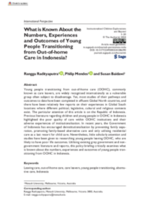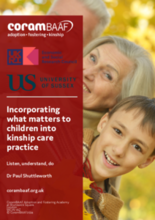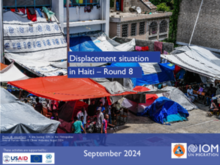Displaying 101 - 110 of 14574
Join Changemakers for Children to launch the first ever Global Kinship Care Week, which will run from 7th - 13th October 2024. Sign up for the webinar What is Kinship Care? Introducing Global Kinship Care Week on 2 October at 10:00 UTC
The Transitioning Residential Care Working Group, part of the Transforming Children’s Care Collaborative, invites practitioners, advocates, organizations, and donors supporting and promoting residential care service transitions to the launch webinar of the Divesting of Residential Care Guidelines and Transition Monitoring Tool.
Using existing grey government and nongovernment literature and reports, this policy briefing critically examines what is known about the numbers, experiences and outcomes of young people transitioning from Out-of-Home-Care in Indonesia.
This paper highlights the experiences of birth mothers who have children placed in kinship care in the UK, focusing on some of the specific challenges they face. For many kinship families, these issues are also felt by the kinship carer. The paper sets out the need to do more to support kinship families - children, kinship carers and birth parents - to ensure children can thrive in safe, stable and loving homes.
This kinship care practice guidance was developed by listening to children's views. It is a practical guide to listening to children living in kinship families to help ensure that their voices and views are heard and acted upon. It is intended primarily for those who support children and families in kinship care arrangements, but it also applies to other areas of child welfare practice.
The India Alternative Care Network hosted this webinar on kinship care in Africa on October 1, 2024.
Join this interactive webinar hosted by India Alternative Care Network (IACN) on October 1, 2024.
This IOM report reveals that there are more than 700,000 people currently displaced within Haiti, 52% of whom are children. Haiti is experiencing an unprecedented crisis that has affected the entire population, including the many orphanages operating there.
Concerns have been raised after it emerged that the PSNI has visited children’s homes on more than 5,000 occasions in the past 12 months and made almost 300 arrests.





